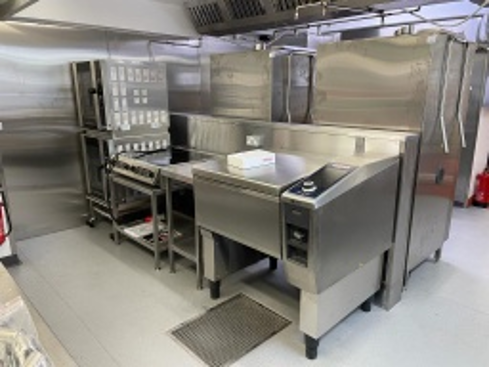Avoiding Stress in Hospitality
By James Stacey, Managing Partner, Accredit
Avoiding stress in the hospitality industry is crucial not only for the wellbeing of employees but also for maintaining high standards of service. The hospitality sector, known for its fast-paced and demanding environment, can often lead to high levels of stress among staff. However, by adopting a systematic approach, businesses in this sector can effectively manage and reduce stress. This article explores various strategies and systems that can be implemented to achieve this goal.
Identifying Stress Factors: The First Step
The first step in any systematic approach is to identify the primary sources of stress. In hospitality, these can range from long working hours, unpredictable schedules, customer service challenges, to inadequate staffing. Employers should conduct regular surveys and hold open discussions with their staff to identify common stress factors. This identification process is critical for tailoring solutions that address the specific needs of the workforce.
Staff Training and Development
Proper training plays a pivotal role in stress reduction. When employees are well-trained, they feel more confident in their abilities to handle various situations, including high-pressure ones. Training should cover not only job-specific skills but also stress management techniques and customer service excellence. Continual professional development opportunities can also enhance job satisfaction and reduce feelings of job dissatisfaction.
Effective Communication Systems
Clear and open communication within the organisation is essential. Management should establish regular well-being check-ins and feedback sessions to ensure employees feel heard and valued. This can include regular team meetings, suggestion boxes, or one-on-one sessions with managers. By fostering an environment of open communication, employees are more likely to voice their concerns before they escalate into significant problems.
Implementing Flexible Scheduling
Flexible scheduling can significantly reduce stress, especially in an industry known for its irregular hours. By allowing employees some control over their schedules or ensuring they have adequate notice of shift changes, employers can help staff manage their work-life balance more effectively. This approach requires a sophisticated scheduling system but can result in a happier, less stressed workforce.
Encouraging a Supportive Work Environment
Creating a supportive work environment is key to reducing stress. This includes recognising employee achievements, providing support during busy periods, and fostering a team-centric culture. Activities such as team-wellbeing sessions can enhance camaraderie and provide a much-needed break from the routine.
Health and Wellness Programmes
Implementing health and wellness programmes can also play a significant role in stress management. These programmes might include access to mental health resources, wellness workshops, exercise programmes, or healthy eating initiatives. By investing in the overall wellbeing of employees, employers can mitigate the effects of stress.
Regular Evaluation and Adaptation
Finally, a systematic approach to stress management should be dynamic. Regular evaluation of the effectiveness of implemented strategies is crucial. Employers should be willing to adapt and refine their approaches based on feedback and the changing needs of their workforce.
In conclusion, reducing stress in the hospitality industry requires a comprehensive and systematic approach. By identifying potential stress factors, providing adequate training, ensuring effective communication, offering flexible scheduling, fostering a supportive work environment, implementing wellness programmes, and regularly evaluating these strategies, employers can create a more positive, productive, and stress-free workplace. This not only benefits the employees but also enhances the overall quality of service, leading to greater customer satisfaction and business success.










